On April 28, Latin American and Caribbean ambassadors to China convened at the Jianhua Building of the School of Economics and Management at Tsinghua University to explore the theme “High-Quality development and Chinese Path to Modernization”. More than 30 diplomatic envoys and representatives from the embassies and institutions from 20 Latin American and Caribbean countries attended the event. President of Tsinghua University Wang Xiqin, Head of the Mission from Latin America and Caribbean and Ambassador of Uruguay to China H.E. Fernando Lugris, and former Chinese ambassador to Peru H.E. Liang Yu delivered opening speeches. Vice President of Tsinghua University Wang Hongwei delivered the closing remarks. Dean of International Affairs of Tsinghua University Li Jinliang, and Director of the Latin America Center Chen Taotao, jointly hosted the event.
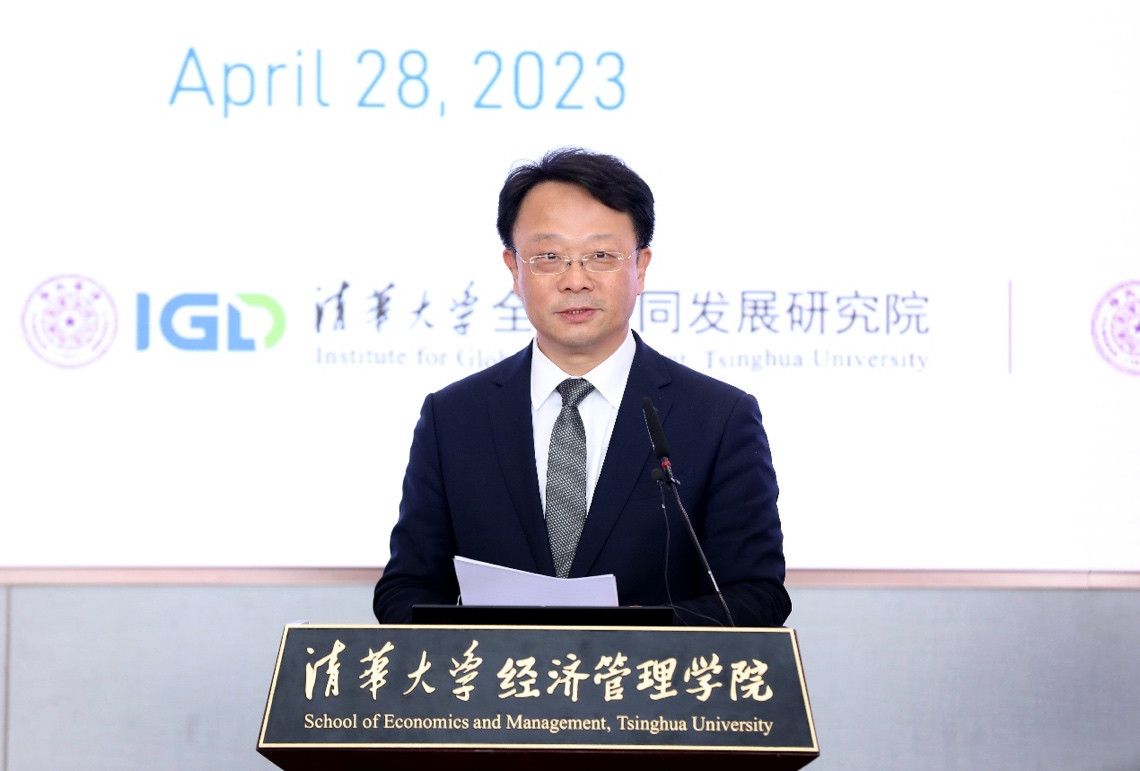
Wang Xiqin extended welcome and thanks to the guests. He said in his speech that Tsinghua University is seeking the approach to better integrate three fundamental and strategic factors for high-quality development, which are science and technology as the primary productivity, talent as the primary resource, and innovation as the primary driving force. Tsinghua is actively exploring a talent cultivation model that takes root in China and integrates Chinese and foreign characteristics, strengthening team science, and further promoting the integration of production, education, and scientific research. He mentioned that Tsinghua University values the importance of cooperation with global trusted partners, and its long-standing friendship with embassies and institutions of Latin American and the Caribbean (LAC) countries is an exceptional example. He emphasized that China and LAC countries should jointly promote peace and development to build a community with a shared future for mankind as global efforts toward economic and social advancement are facing significant challenges amid the major changes occurring worldwide.
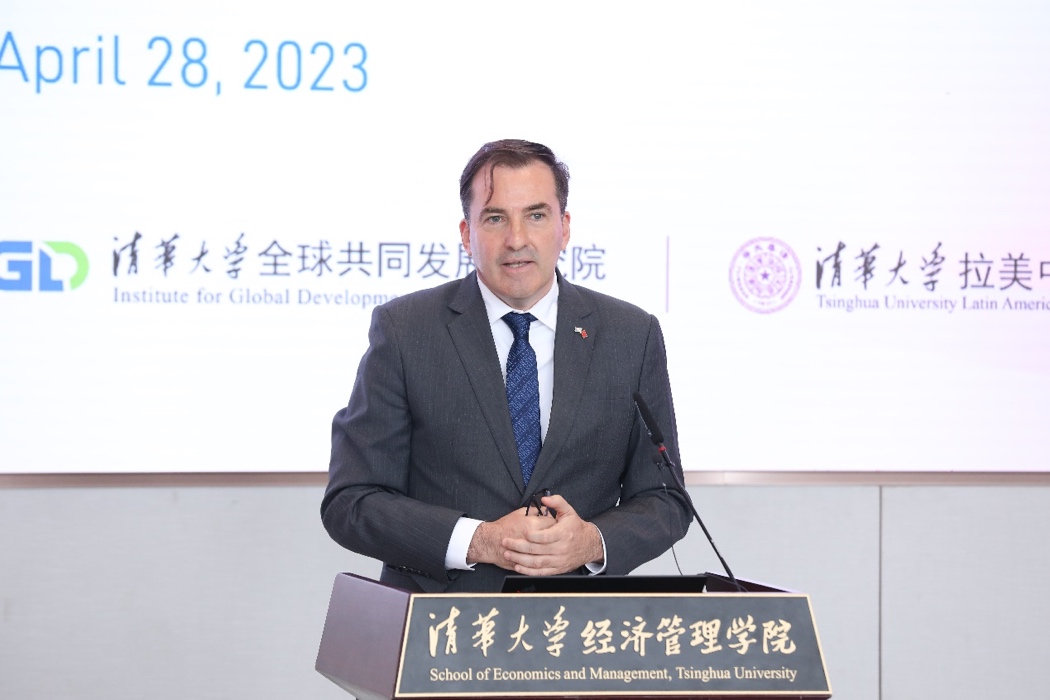
Fernando Lugris highlighted the significance of understanding what high-quality development means and its impact on enhancing the China-LAC comprehensive cooperative partnership. He said this year witnesses the 3rd Latin American and Caribbean Ambassadors convention at Tsinghua University and we need to continue this good tradition. He expressed a desire to further explore collaboration models between Chinese and LAC universities to enhance mutual learning and progress.
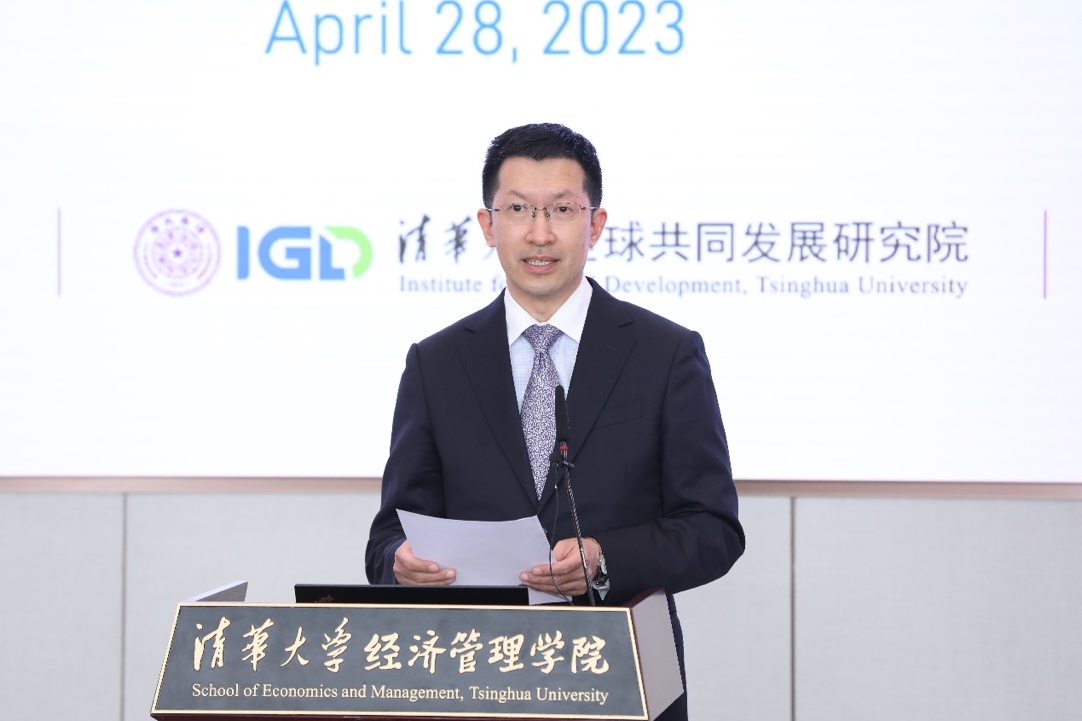
Liang Yu said in his speech that China firmly supports Latin American and Caribbean countries in exploring modernization paths that suit their national conditions, and will take the Belt and Road Initiative and the Global Development Initiative as platforms to strengthen cooperation with Latin American and Caribbean countries in infrastructure, digital economy, electric vehicles, artificial intelligence, 5G, smart cities and other fields.
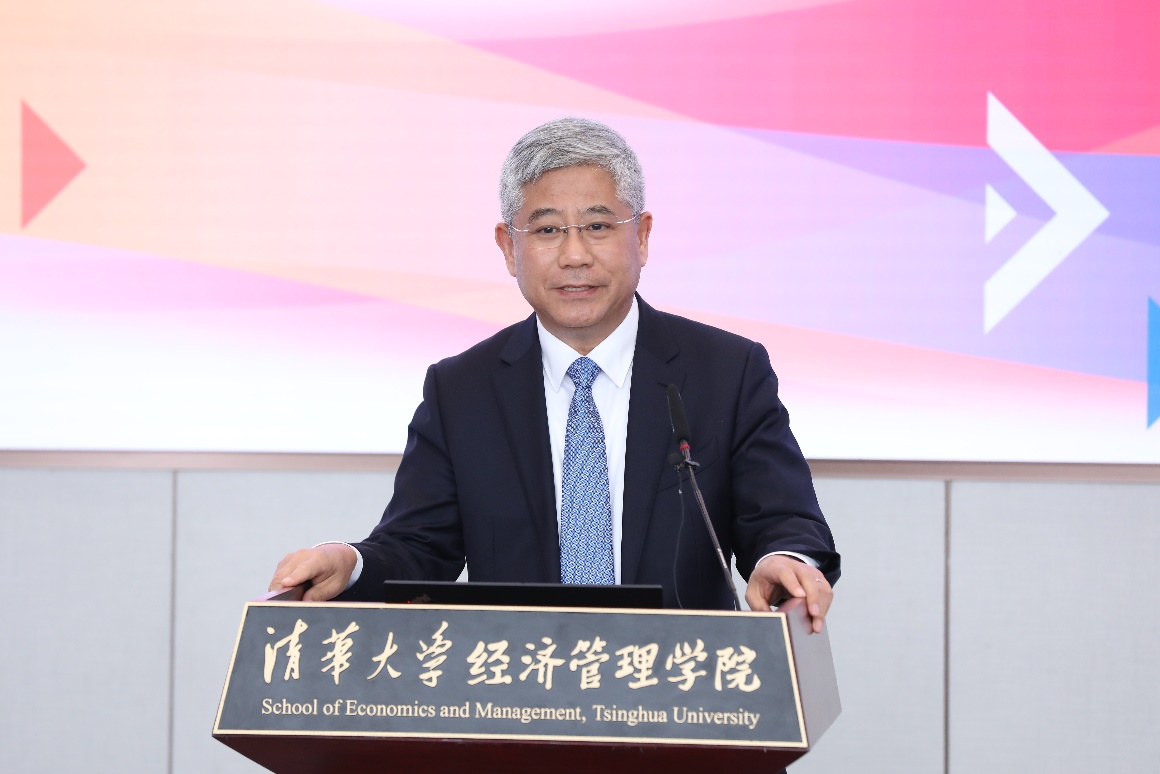
Bai Chong’en, Dean of the School of Economics and Management of Tsinghua University, delivered a report entitled "High-Quality Development and Chinese Modernization" in the keynote speech and roundtable discussion. During the round table discussion, ambassadors and diplomatic envoys from Ecuador, Mexico, Suriname, Barbados, Uruguay, Brazil, Jamaica, El Salvador and other countries had positive exchanges with Bai and had a detailed discussion on how Latin American and Caribbean countries can learn from China's development experience.
In the meeting, He Ping and Xu Xin, deputy deans of the School of Economics and Management of Tsinghua University, introduced the basic information of this school and conveyed their aspirations to establish more partnerships with LAC universities.

Ambassadors present at the meeting agreed that the event was very meaningful and enhanced their understanding of Chinese modernization. They hoped that China's experience will be better shared by Latin American and Caribbean countries and provide new impetus to local development. The ambassadors highly appreciated China's peaceful development strategy and multi-polar world proposition, expressed gratitude to China for its continued dedication and commitment to sustainable development, and looked forward to strengthening cooperation with China and learning from each other. At the same time, the ambassadors and envoys also expressed their sincere wishes to have more exchanges and cooperation with Tsinghua University in various aspects.
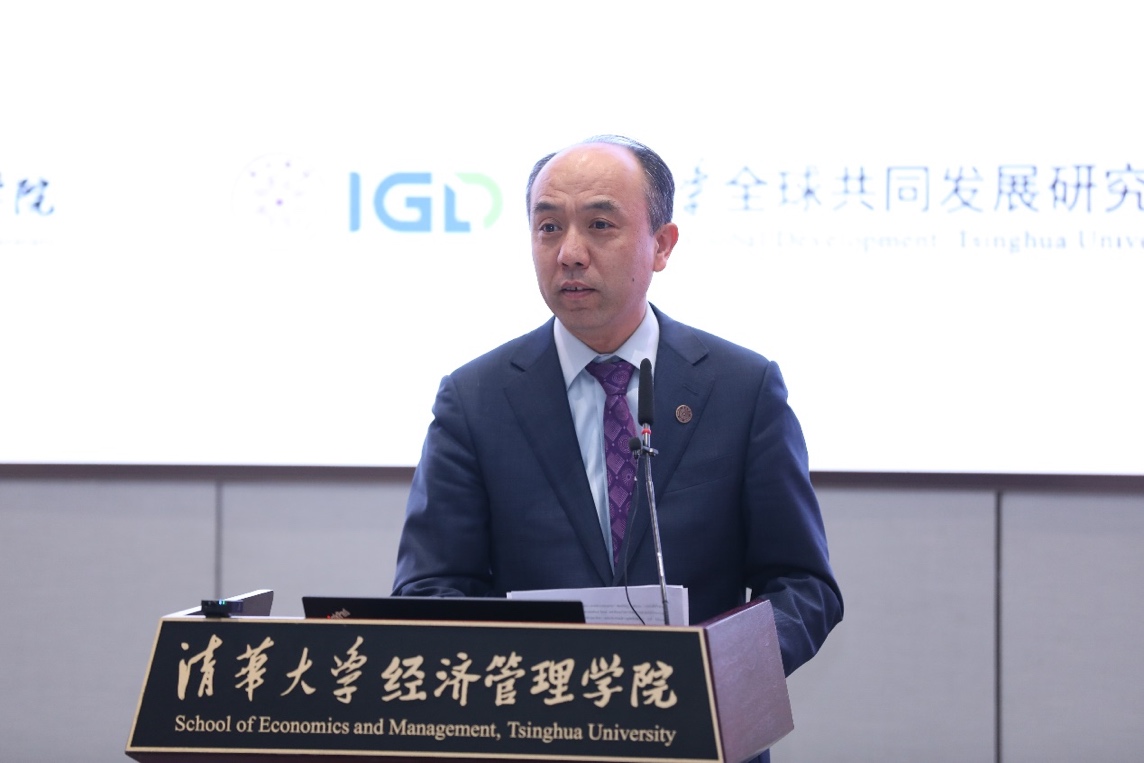
Finally, Wang Hongwei, vice president of Tsinghua University, declared the event closed successfully. He expressed appreciation to all the diplomatic representatives for their support and participation. He said China and LAC Countries work closely together and have increasingly friendly relations. Universities are also an important part of this. He believes that this event will promote more pragmatic cooperation between the two sides on such important issues concerning our shared future as economic development, youth global competency, artificial intelligence and online education.

The representatives who attended the event include Fernando Lugris, Uruguay’ Ambassador to China, Carlos Humberto Larrea Davila, Ecuador’ Ambassador to China, Leonardo KAM, Panama's Ambassador to China, Anyin Choo, Guyana's Ambassador to China and Hallam Henry, Barbados’ Ambassador to China, Jesus Seade, Mexico's Ambassador to China, Mauricio Hurtado, Chile's Ambassador to China, Pick Fung Ho-Chong, Ambassador of the Republic of Suriname to China, Sergio Cabrera, Colombian Ambassador to China, Jamaica Charge d 'Affaires Melissa Price Pryce, Grenada Charge D 'Affaires Tricia D. Bethel and representatives from Venezuela, El Salvador, Dominica, Brazil, Cuba, Trinidad and Tobago, Argentina, Peru, Bahamas and other countries.
The event was hosted by Tsinghua University and organized by the Office of International Affairs of Tsinghua University, School of Economics and Management of Tsinghua University, Institute for Global Development of Tsinghua University and Latin America Center of Tsinghua University. Nearly 100 faculty and students from the University participated in the event.
Editors: Huang Fei,John Paul,Kua Yee Shuen

